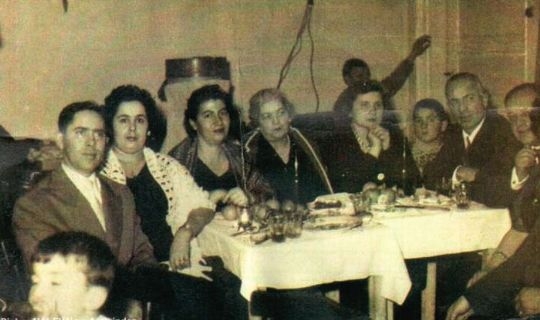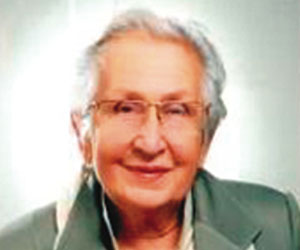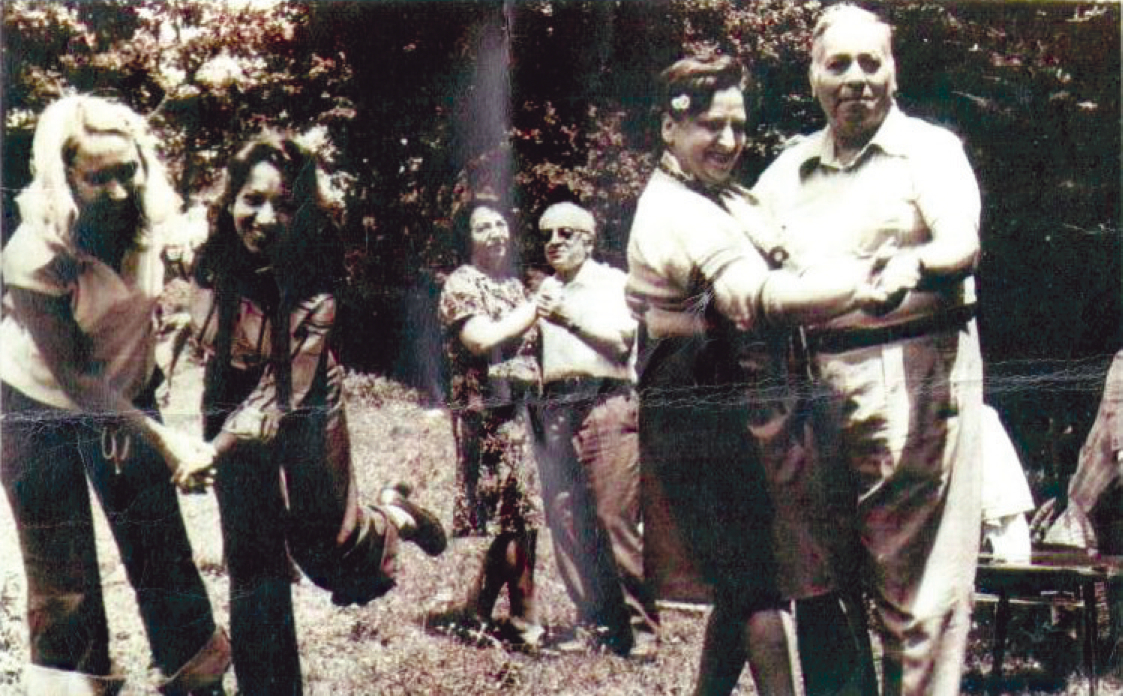
Once upon a time in Kırklareli
One hundred years ago, 1.300 Jews lived in Kirklareli. Today, there are only three left. Born and raised in Kirklareli, Mrs. Berta Magriso left her hometown after she lost her husband to move in with her children in Istanbul. We spoke with her about the past, the present and her longings...

First of all, could you tell us a little bit about yourself?
My name is Berta Alevi Magriso. I was born in 1927, in Kirklareli. After graduating from Kirklareli Secondary School, my parents sent me to Istanbul to study at Notre Dame de Sion High School as a boarding student. But, after only a year, I returned to Kirklareli and married Sami Magriso. My husband owned a drapery and haberdashery store. He also ran a dairy business. Many years ago, I sent my son and my daughter to Istanbul to study. My son graduated from Faculty of Architecture. My daughter, after graduating from high school studied at State Clerical School for two years. After my husband passed away in 1995, I moved to Istanbul to be with my children.

Can you tell us about the daily life of the Kirklareli Jewish Community back then and about your own life?
Kirklareli has always been a very modern city. When I was a young girl, I used to ride my bike in the city. We were a modern community, dedicated to our traditions and customs yet we were not devoutly religious. We observed the laws of Kashrut . My father wouldn’t smoke on Shabbat and wouldn’t let anyone in the house light a fire. However, men opened their stores after the Saturday morning prayer.
My father was a devout Jew. He handled the needs of the synagogue. My mother wouldn’t ask me to do chores in the house; I led a pretty comfortable life. But, apparently, when in need people do all sorts of things. When my father’s assistant died, he asked me to help him at the synagogue. I helped him by of sewing shrouds, cleaning Torah Rolls, doing night shifts and taking care of the sick people.
I married a man from Kirklareli. A few more couples also married in Kirklareli. As I recall Alevis, Abravanels and Kanetis were among those couples. Since young people in Kirklareli already knew each other, they would marry someone from Edirne, Corlu or Istanbul. The wedding ceremonies used to take place at Kirklareli Synagogue. Mongers from general society worked at the shops below the synagogue. We had close bonds with the general society, in other words we were completely integrated. But, we were not assimilated. I remember there was only one woman who married someone from another faith. We had many friends from the general society. Our friends and neighbors accepted us as their fellow townsmen. We never experienced religious segregation. We used to visit each other, all the time. They invited us to meetings and get-togethers at Community Center and Officer’s Club. At those meetings and get-togethers, we all sat together and had fun. For many years at the Mothers Association, I worked alongside my friends from the general society. We used to raise money to support students’ education and visit mothers in jail, on Mother’s Day. Since almost all of us knew needlecrafts, we sewed pretty things and sold them at the charity fairs. With the money we raised from those fairs, we supported students living in the Orphanage.
Were young Jews educated at those times? What did men used to do for a living? What did women do in their spare times?
Young boys who were older than me used to go to Alliance School. My brother was among them. People who studied at Alliance usually went to France, after graduation. Some of them went to Edirne or Istanbul. In my time, girls didn’t go to school much. They were mostly housewives. There weren’t many women who worked. I barely remember a couple of women who were tailors. Women mostly did housework. In their spare times, they used to get together and sew. Once in every two months, they visited their children or relatives in Istanbul. People used to go to Istanbul by train. It took twelve hours to get there. After a while, Vabis Bus Services started operating. The trip to Istanbul by bus took only four hours. There was a popular saying at the time the children used to tell to their mothers: “Mom, just tell me and I’ll buy you a Vabis ticket.”
The men used to run stores inside the market place. They were mainly drapery and haberdashery stores, grain stores or dairy stores.
Do you have a bitter or happy memory that you cannot forget?
There is a bitter memory I cannot forget. In July 1934, during the Thrace Incidents, all of the stores and houses were plundered. They threw stones at our houses, they broke our windows, and everywhere was ruined. We couldn’t get inside. The next morning, we decided to go to Istanbul. The first train left in the evening. The second train would leave in the morning. That night, all of the families gathered in one house. The district attorney’s wife stayed with us that night. There were guards at our door for our protection. The next morning, policemen took some of us back to our houses. Some of us left Kirklareli, for good. I was only seven years old, at the time. Some of our stuff was stolen; some were thrown in the gutter. We picked the stuff that were left and took them home.
Aside from Thrace Incidents and a few minor incidents, I can say that “Kirklareli loves everybody, without any discrimination.” Kirklareli is my hometown, I led a life there. We led a happy life, there. I always miss those days and my friends.
Related Newsss ss













